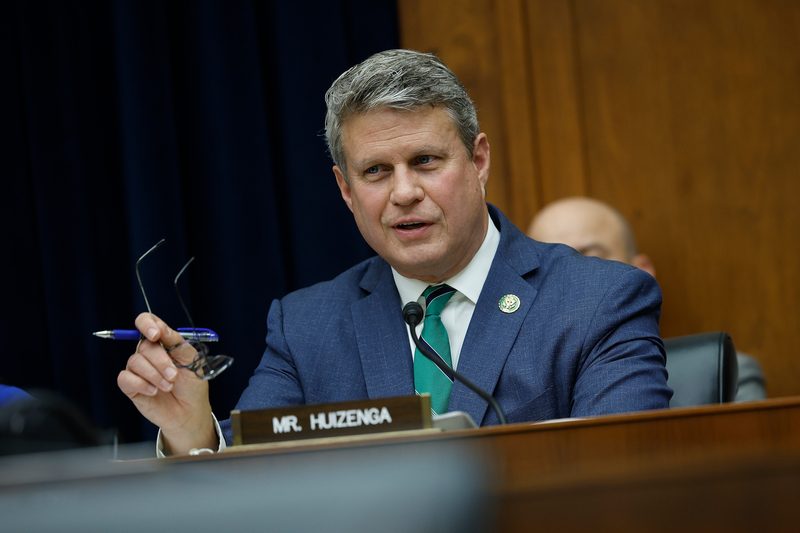The SEC said a recent wave of applications filed by asset managers to launch spot bitcoin exchange-traded funds are inadequate, according to the WSJ’s discussions with people familiar with such matters.
The agency informed exchanges Nasdaq and Cboe Global Markets, which filed the applications on behalf of asset managers, including BlackRock and Fidelity Investments, that they aren’t sufficiently clear and comprehensive, the people said.
The exchanges or asset managers can update them to address the regulator’s feedback and refile, and Cboe did both on Friday afternoon to address the regulator’s feedback.
Following in BlackRock’s and Fidelity’s footsteps are Cathie Wood’s Ark Investment Management, Invesco, WisdomTree, Bitwise Asset Management and Valkyrie, each of which reactivated or amended their applications for a spot bitcoin ETF in recent days.
Significance
An ETF that tracks the actual price of bitcoin would be a significant boon to the industry, because it would provide wider access to the cryptocurrency, given the accessibility and popularity of ETFs among retail investors. It would allow investors to buy and sell bitcoin through a brokerage account as easily as shares of stock.
In the futures marketplace, at least a half dozen ETFs feature bitcoin futures as part of their fund offerings.
As the WSJ notes in its article, some industry watchers predicted that BlackRock’s filing would appease the SEC’s concerns through an agreement to share “surveillance” of a spot bitcoin-trading platform with Nasdaq, which would list the ETF.
An issue in the rejection was that the exchanges did not name the crypto-trading platforms with which it planned to enter into surveillance agreements to help detect fraud in bitcoin markets.
Fidelity and Ark also included similar language about a “surveillance-sharing agreement” with the Cboe, which would list their ETFs.
It didn’t end up guaranteeing anything, though. The SEC told the exchanges that it returned the filings because these businesses didn’t name the spot bitcoin exchange with which they are expected to have a “surveillance-sharing agreement,” nor did they provide enough information about the details of those surveillance arrangements.
Resubmissions
A key issue in the rejection of the applications was that the exchanges did not name the crypto-trading platforms with which it was planned to enter into surveillance-sharing agreements to help detect fraud in the underlying bitcoin markets.
It is up to the exchanges that filed the applications on behalf of the asset managers to refile the applications. As noted above, Cboe did on Friday, and those were on behalf of Ark, Fidelity, Invesco, VanEck, and WisdomTree.
Nasdaq has yet to refile on behalf of BlackRock, but the exchange is likely to enter into an agreement with Coinbase, according to the WSJ’s sources.
Refiling these applications resets the clock, so it sets the asset managers back seven days on the competitive race to launch the first spot bitcoin ETF.
After an exchange or asset manager resubmits an application, the SEC has 15 days to put the filing out for public commentary, during which it can return the filing to them again by the seventh day. After the 15-day period ends, the SEC has up to 240 days to either approve or reject the filing.
On the horizon
Happening alongside the bitcoin ETF race is a legal battle between the SEC and Grayscale Investments about the company’s spot bitcoin offering.
The crypto-asset manager sued the SEC in June last year after it rejected its bid to convert the Grayscale Bitcoin Trust into a bitcoin offering, and a verdict is expected in the fall.
It’s also interesting that Cboe is planning to enter into a surveillance-sharing agreement with Coinbase, as the SEC sued Coinbase in June for failing to register as an exchange.
Coinbase filed an answer to the SEC’s complaint with a Manhattan deferral court, asking the court to toss the lawsuit, saying the regulator lacks the authority to pursue a civil claim, because the crypto assets on its trading platform are not securities.

















